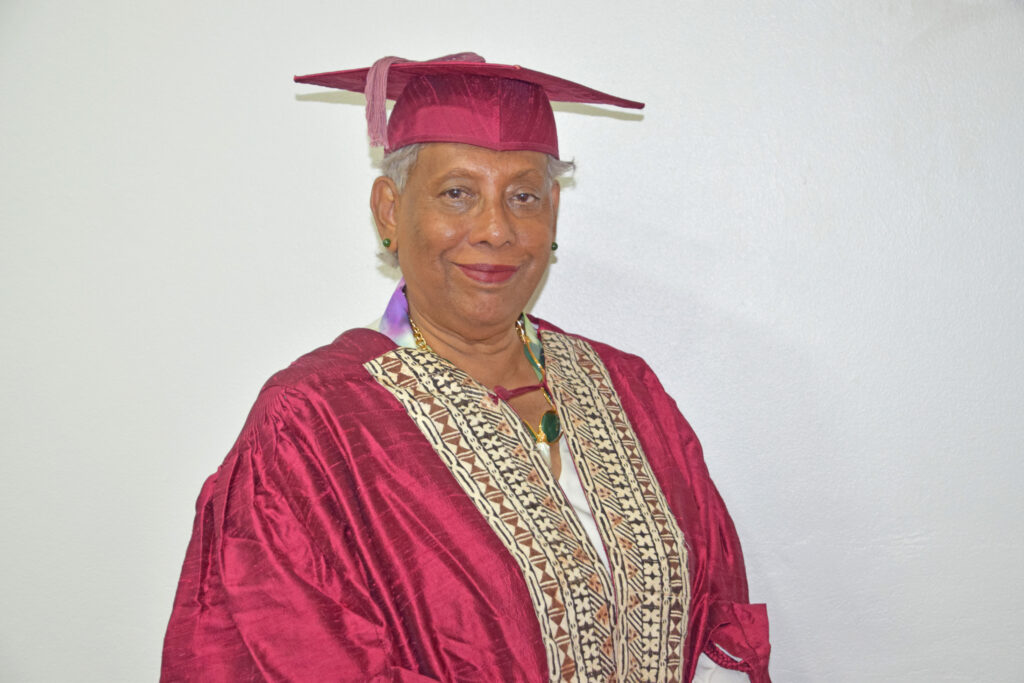All those attending the University of Fiji Graduation Ceremony, irrespective of their age group or station in life, should label themselves as ‘GenNext’ and take the responsibility to act in the public good on behalf of their people, their places and their planet.
This was the message given by the Vice Chancellor, Professor Shaista Shameem when addressing the graduating students, their parents, families and invited guests at the Saweni Campus.
Professor Shameem said that people of all ages who were attending the University’s graduation ceremony could provide a united and collective voice for all the generations, present and future, to combat the serious problems faced not only by Fijians but the whole world. Such problems included conflicts, gross human rights violations, shameless exploitation of people and natural resources, rampant profiteering in the name of industry and economic development, and unchecked abuse of power and privilege.
The generations to date, for example the baby boomers, Generation X, the millennials, and even Generation Z in parts, had all left behind a wrecked planet. She said it was their duty now, together with the current generation, to provide avenues, and not just band-aid solutions, for societal improvement on behalf of everyone especially the generations to come. This collective could define itself as GenNext as this term did not leave out any particular age group, said Professor Shameem.
Professor Shameem said the University of Fiji, with its human values foundation of education and its collective community outlook, served as a good anchor for GenNext. Not only was the University internationally accredited, it was also organizationally proficient, having being asked by significant stakeholders to help develop their strategic plans. For example, the University had recently signed a Memorandum of Understanding with the Levuka Town Council to assist the Council with its sustainable development plans.
As part of the MOU arrangements with the Levuka Town Council, the University would offer programmes for the whole community, including school leavers. The University’s special brand of education was holistic and inclusive which suited the unique culture of Levuka and Ovalau.
MOUs with other significant organizations across all sectors in Fiji were in the pipeline for strategic plan development.
Professor Shameem said the graduates of the University of Fiji were highly regarded by public bodies and the private sector due to the combination of strong formal qualifications and emotional intelligence in the graduate profile. This meant that the completion and employment rates of the University were second to none. The University’s data revealed that more than 80% of its graduates were employed in the public and private sectors and many were in senior positions. The University also encouraged self-employment and entrepreneurship that specifically protected the environment and people. The business model that destroyed the environment and exploited people and resources was discouraged at the University, she said.
To ensure that optimum quality higher education was provided to its students, the University’s outputs were assessed on a yearly basis. Outcomes related to nation-building and improving the world were also measured annually through the quality assurance unit of the University.
Professor Shameem said the University had a firm view of what a knowledge-based society should look like. Its students were carefully trained to ensure that when they graduated they would be leaders with their social responsibility chip confidently displayed.
She congratulated the graduates for being successful role models to all who came after them. A total of 327 students graduated from the University at the ceremony.

![]()

